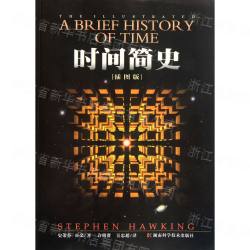-
内容大纲
本书是冯契“哲学史两种”(《中国古代哲学的逻辑发展》《中国近代哲学的革命进程》)的简缩本《中国哲学通史简编》的英译本,是一部贯通上古至1949年为止的完整的“中国哲学通史”。全书围绕“天人、名实”之辩、“理气(道器)”之辩、“心物(知行)”之辩等重要命题展现中国哲学的演化脉络。冯契在书中提出了自己关于哲学史的定义:哲学史是“根源于人类社会实践主要围绕着思维和存在关系问题而展开的认识的辩证运动”。
本书从广义认识论的角度突显了中国传统哲学的特点:在逻辑学上,中国传统哲学擅长辩证逻辑,而在自然观上,则发展了气一元论,这与西方人发展形式逻辑和原子论颇为不同;在伦理学上,中国传统哲学注重自觉原则,而在美学上则较早提出了言志说和意境理论,这和西方人高扬自愿原则和较早提出模仿说及典型性格理论也是旨趣不同的。本书也对中国近代哲学(1840—1949)做了开拓性的研究,指出中国近代哲学革命在“古今中西”之争的制约下,围绕历史观、认识论、逻辑和方法论问题以及人的自由和理想问题等四个方面展开,既受到西方近现代哲学的影响,又是中国传统哲学的“理气(道器)”之辩、“心物(知行)”之辩、“名实”之辩、“天人”之辩在近代的发展。本书同时论述了当代中国对于近代哲学革命如何“接着讲”的问题。 -
作者介绍
冯契(1915-1995),原名冯宝麟,20世纪中国著名哲学家、哲学史家,早年师从金岳霖、冯友兰、汤用彤等。经过一生的沉思,建构了“智慧说”的哲学体系。代表作有“智慧说三篇”(《认识世界和认识自己》、《逻辑思维的辩证法》、《人的自由和真善美》)和“哲学史两种”(《中国古代哲学的逻辑发展》、《中国近代哲学的革命进程》)。 -
目录
Chapter 1 Introduction
1.1 The Methodology for the Study of the History of Philosophy
1.2 Characteristics of Traditional Chinese Philosophy
1.3 The Struggles Between "Past and Present" and Between "China and the West" and the Revolution in Modern Chinese Philosophy
References
Part Ⅰ The Pre-Qin Period (CA. 1046- 256 BCE)
Chapter 2 The Rise of Confucianism, Mohism, Daoism, and Legalism
2.1 Confucius' Doctrine of the Unity of Humanity and Knowledge
2.2 Mozi and the Conflict Between Confucianism and Mohism -- The Antagonism Between Empiricism and Apriorism
2.3 The Laozi: "The Movement of Dao Consists in Reversion" -- The Presentation of the Dialectical Principle of Negation
2.4 Sunzi Bingfa ( Sunzi' s Art of War) and the Rise of the Legalist
References
Chapter 3 The High Tide of Contention Among the "Hundred Schools of Thought"
3.1 The Guanzi: The Confluence of Legalism and Doctrines of the Huang-Lao School
3.2 The Conflict Between Confucian and Legalist Schools and Mencius' Doctrine of the Goodness of Human Nature
3.3 Zhuangzi: "Where All Things Are Equal, How Can One Be Long and Another Short?" -- Relativism Against Dogmatism
3.4 The Logicians' Debates on "Hardness and Whiteness" and on "Similarity and Difference" -- A Conflict Between Relativism and Absolutism
3.5 Later Mohist Views on the Relationship Between Names and Actualities and on Nature
References
Chapter 4 The Summing-Up Stage of Pre-Qin Philosophy
4.1 Xunzi's Summation of the Debates over "Heaven and Humankind" and over "Names and Actualities" -- The Union of Naive Materialism and Naive Dialectics
4.2 Han Fei: "Incompatible Things Cannot Coexist"
4.3 The Yi Zhuan: "The Interaction of Yin and Yang Constitutes the Dao" -- The Establishment of the Naive Principle of the Unity of Opposites
4.4 The Development of the Doctrine of the Yin-Yang and Five Agents -- The Application of the Comparative Method of Dialectical Logic to the Sciences
References
Part Ⅰ A Brief Summary
Part Ⅱ From the Qin-Han to the Qing Dynasty
Chapter 5 The Supremacy of Confucianism and Criticisms of Confucian Theology
5.1 Dong Zhongshu and the Huainanzi -- The Antagonism Between the Teleological and Mechanistic Doctrines of Huo Shi
5.2 Wang Chong's Materialistic Doctrine of Mo Wei in Opposition to the Doctrine of Huo Shi
References
Chapter 6 Mysterious Learning and the Coexistence of Confucianism, Daoism, and Buddhism
6.1 Wang Bi's Doctrine of "Valuing Non-being" and Pei Wei's "On the Importance of Being"
6.2 Ji Kang's Challenge to Fatalism
6.3 The Commentary on the Zhuangzi: "When There Is Being, There Is Non-being" -- The Doctrine of "Self-transformation" Against Metaphysical Ontology
6.4 Ge Hong's Daoist Philosophy and Seng Zhao's Buddhism Expounded in Terms of Mysterious Learning
6.5 Fan Zhen's Summing-Up of the Debate over Body and Soul -- The Application of the Materi
Chapter 8 The Prevalence of Neo-Confucianism and the Criticisms of Neo-Confucianism
8.1 Zhou Dunyi, Shao Yong, and the Cheng Brothers: Founders of Orthodox Neo-Confucianism
8.2 Zhang Zai's Summing-Up of the Debate over "Being and Non-being (Movement and Tranquility)" -- An Exposition of the Principle of the Unity of Opposites in Terms of Qi Monism
8.3 Zhu Xi's System of Principle Monism
8.4 The "Jing Gong New Learning" and the "Utilitarian Learning" as Opposed to the Chengs and Zhu Xi's Doctrine of Principle
8.5 Wang Shouren's System of Mind Monism
8.6 Li Zhi's "Heretical" Thoughts
References
Chapter 9 The Summing-Up Stage of Ancient Chinese Philosophy
9.1 Wang Fuzhi's Summary of the Debate over "Principle and Vital Force (The Dao and Concrete Things)" and "Mind and Matter/Things (Knowledge and Action)" -- A System of Qi Monism Unifying Naive Materialism and Naive Dialectics
9.2 The Enlightenment Thought and Historicist Methodology of Huang Zongxi
9.3 Gu Yanwu's "Practical Learning of Cultivating Oneself and Governing Others"
9.4 Yan Yuan's Discussion of "Practice" and Dai Zhen's Discussion of "Knowledge"
References
Part Ⅱ A Brief Summary
Part Ⅲ Modern Period
Chapter 10 The Forerunners of Modern Chinese Philosophy
10.1 Gong Zizhen" "The Dominator of the Masses Is Called the ' Self' " -- The Beginning of Modern Humanism
10.2 Wei Yuan: "Basing My Ideas on Things" and "Knowing Something after Being Involved in Something, -- The Beginning of the Debate over the Relation Between Mind and Matter/Things (Knowledge and Action) in Modem Times
References
Chapter 11 The Stage of Evolutionism in the Philosophical Revolution
11.1 Kang Youwei: An Advocate of Historical Evolutionism
11.2 Tan Sitong: The "Study of Humanity" Aimed at Breaking the Chains of Bondage
11.3 Yan Fu's "Doctrine of Natural Evolution" and Empiricism
11.4 Liang Qichao on the Freedom of the "Self" and the Evolution of the "Group"
11.5 Zhang Taiyan: "Competition Produces Intelligence and Revolution Develops People's Knowledge" -- A Rudimentary Version of the Viewpoint of Social Practice
11.6 Wang Guowei: The Believability Versus the Lovability of Philosophical Theories
11.7 Sun Yat-Sen's Evolutionism and His Doctrine of the Relation Between Knowledge and Action
References
Chapter 12 The Philosophical Revolution Enters the Stage of Materialist Dialectics
12.1 Li Dazhao and Chen Duxiu: From Evolutionism to Historical Materialism
12.2 Hu Shi's "Experimentalism" and Liang Shuming's Intuitionism
12.3 The Debate over Science Versus Metaphysics and Qu Qiubai's Historical Determinism
12.4 Lu Xun on National Characteristics and His Aesthetic Ideas
References
Chapter 13 The Sinicization of Marxism and the Contributions Made by Professional Philosophers
13.1
同类热销排行榜
- 知行合一王阳明(1472-1529)14.4
- 八万四千问18
- 知行合一王阳明(3王阳明家训)14.4
- 梦的解析15.92
- 我心温柔自有力量15.2
- 自控力(斯坦福大学最受欢迎心理学课程纪念版)(精)19.92
- 幸福爱(从新手到高手的爱情修习课)15.92
- 传习录(明隆庆六年初刻版全译全注)14.4
- 菜根谭/中华经典藏书7.6
推荐书目
-

孩子你慢慢来/人生三书 华人世界率性犀利的一枝笔,龙应台独家授权《孩子你慢慢来》20周年经典新版。她的《...
-

时间简史(插图版) 相对论、黑洞、弯曲空间……这些词给我们的感觉是艰深、晦涩、难以理解而且与我们的...
-

本质(精) 改革开放40年,恰如一部四部曲的年代大戏。技术突变、产品迭代、产业升级、资本对接...

 [
[
